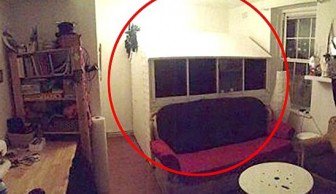Rural housing campaigners believe that the Government’s plan to extend the Right to Buy scheme to housing association tenants could destroy the delivery of affordable housing.
The Government is proposing allowing housing association tenants in England to buy their homes at a discount.
However, rural housing groups have criticised the plans, saying they will further limit the supply of affordable homes.
The Government insists it is listening to these concerns and details of the scheme are expected in autumn this year.
Farmer Michael Eavis, who is the founder of the Glastonbury Festival, says the plans are “absolutely dreadful.”
Over the past two decades, Eavis donated several acres of land to allow a housing association to build 22 affordable homes, close to the festival’s site in the village of Pilton, Somerset.
“It would be absolutely fatal for this village,” he believes. “They’d be sold off in no time, so they’d go to people who come in from outside.”

Right to Buy Extension Will Hit Affordable Housing
Additionally, Eavis says he won’t donate any more land if Right to Buy is extended in villages like Pilton: “It defeats the whole object of the exercise, which is to provide low cost housing to local people.”1
Extending the scheme was one of the key points of the Conservatives’ housing plans.
The scheme would allow tenants to buy their housing association homes at a discount and would be financed by councils being forced to sell off their high value assets when they become vacant. The Government states that every house sold will be replaced.
Social housing accounts for just 12% of rural property stock, according to the Rural Policy Housing Review. This is 7% less than in urban areas.
The average rural house price is 26% higher than an urban home, due to competition from commuters, retirees and second-homeowners, revealed a study by the Halifax in November 2014.
Often, housing associations rely on local farmers donating or selling land below market rates, to build homes.
A farmer in Saham Toney, Norfolk, Ed Buscall, was approached by Hastoe Housing Association and the local parish council a number of years ago.
He says: “They came to me and said the village school was under threat and that locals were finding it increasingly difficult to find houses here because of people retiring from London and pushing up prices.”
Toney sold the land cheaply and Hastoe built eight homes. However, similarly to Eavis, he won’t do it again if the Government’s plans are realised.
He adds: “I wouldn’t have sold the piece of land if I knew that in a few years time people could just sell it on to anybody.”1
Sarah Green, her husband and two children, now occupy one of the homes built on Buscall’s land. Sarah is a teaching assistant at the local school and couldn’t afford to buy a property in the village.
Sarah is the type of tenant that the Right to Buy extension is aimed at. But she is not interested: “I don’t think it’s my right to have one of these houses. Where is everyone else going to go? And the younger generations coming into the village? Well, they won’t be able to will they, as there won’t be any homes like this.”1
About 465,000 council homes have been sold in rural England since Right to Buy was introduced for council housing tenants in the 1980s, says the National Housing Federation (NHF).
Furthermore, some stock has been transferred to housing associations, meaning that 65% of rural local authorities do not own any homes.
Campaigners are worried about who will compensate rural housing associations that must sell their homes.
The Government says that it is still consulting on this, but the Housing Minister, Brandon Lewis, suggests that urban councils will help fund rural sales.
He says: “The Government will fund that discount using high value sales. Central Government will ensure that housing associations are able to do 1:1 funding.
“We will make sure we support the discounts that housing associations will give, ensuring people can buy a home of their own. We will outline the details when we publish the housing bill in the autumn.”1
The smallest rural areas in the country are already exempt from the existing Right to Buy scheme and the Government plans to continue with these restrictions.
1 http://www.bbc.co.uk/news/business-33641869











